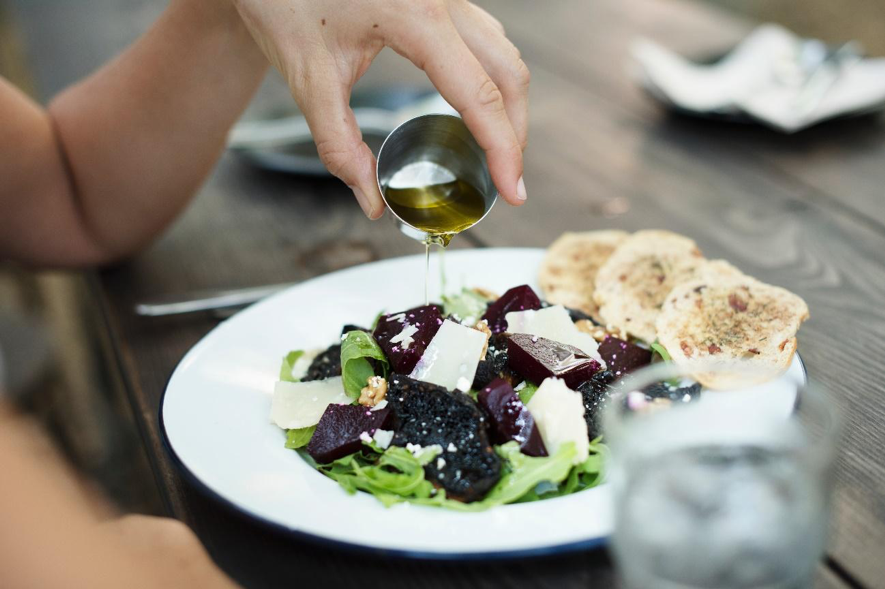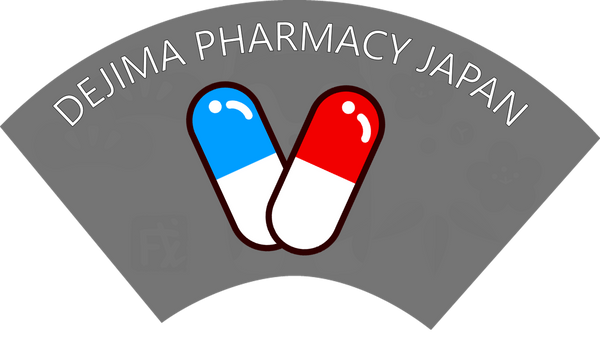
Foods you need to be careful with Drug Interaction (4)
Share

We are often directed to take medicines after each meal. However, medicines may interact with foods within a body, and end up working less effectively, or cause dangerous side effects.
Even the food known as healthy for our body, there are dangerous combinations with some medicines. We need to be careful not to take these foods too much at once.
In this article, as following the previous article “Foods you need to be careful with Drug Interaction (3),” we will continue talking about the dangerous drug interactions with the other foods.
Natto (fermented soybeans) and salad oil may increase the risk of cerebral stroke or myocardial infarction when taken while on antithrombotic medicine
You need to avoid even a little amount of natto while taking warfarin potassium (antithrombotic medicine). This is because vitamin K contained in natto reduces the effectiveness of medicine and causes thrombosis that may block the flow of blood. (※Refer the article, Foods you need to be careful with Drug Interaction (2) ) Compared to other foods, natto contains rich amount of vitamin K. Add to that, it also can produce vitamin K within intestines, and dangerous interactions to be subjected to occur.
Why natto contains rich amount of vitamin K:
- From the first, Natto itself contains a lot of vitamin K.
- Normal bacterial flora called Bacillus natto creates a lot of vitamin K within intestines.
With above reasons, natto, even a little amount, can easily disturb warfarin potassium to work effectively.
Aspirin as known as antipyretic analgesic is also used for antithrombotic medicine. This medicine, however, works in different mechanism compared with warfarin potassium, and does not get vitamin K influence. Therefore, it is not necessary to avoid natto for aspirin intake.
Product(s) of aspirin:
Antipyretic analgesics: Alka-Seltzer, etc.
Antithrombotic medicine: Cardiprin, etc.
Besides natto, there are some vegetable oils that also contain rich amount of vitamin K. Soybean oil and rapeseed oil fall in this category, and the vegetable oil which these oils formulated in also often contains vitamin K in high volume. It is rare to take these oils in large portion at once, but we need to be careful when taking deep-fried foods such as French fries and tempura (Japanese fried food). For those who are taking warfarin potassium, it is safer to use sesame oil or sunflower oil that does not contain much amount of vitamin K.
Example(s) of vegetable oil with more vitamin K: Salad oil, soybean oil, rapeseed oil.
Example(s) of vegetable oil with less vitamin K: Sesame oil, sunflower oil, corn oil, etc.
Seaweeds may increase the risk of diseases of thyroid gland when taken while on antiarrhythmic medicine
If you keep eating seaweed while on antiarrhythmic medicine called amiodarone hydrochloride (Product name: Cordarone), the medicine interacts with iodine, which becomes thyroid hormone and contained in seaweed, and cause some influences on thyroid hormones.
Example(s) of foods with high iodine content: Kelp, wakame seaweed, sardine, mackerel, bonito, soybean, butter, adzuki bean(Japanese red bean), chicken, etc.
Many mouthwash or antiseptic products use the iodine content. It is better to assure with your doctor or pharmacist when using these products because an iodine gets absorbed from the oral mucosa membrane as well. The diseases of thyroid gland usually does not accompany pain and are often overlooked. Please have an examination at any medical institution as soon as you find the following symptoms while on medication.
Symptom(s) of hypothyroidism: Fatigue, muscle weakness, weight gain, cold intolerance, constipation, depression, etc.
Iodine for radiation countermeasure
Iodine tablets suppress the absorption of radioactive substances, and this fact spread widely because of the 2011 Japan earthquake and tsunami in Japan. In a meantime, some people influenced by the misleading information had tried eating a lot of seaweed or drinking gargle liquid. We can expect the efficacy only with iodine tablets, so should not be deluded by unfounded rumors.
The risk of aluminum encephalopathy with foods with citric acid
There are more than a few that contain aluminum among the commercially available medicines for stomach or fever/painkiller. After a long-term intake of aluminum, however the report says, will result in aluminum encephalopathy or aluminum-related bone disease, and the symptoms that are similar to dementia or bone pain may also occur. When taken with the foods with citric acid such as vinegar or umeboshi (Japanese pickled plum), the risk will be even greater. Moreover, aluminum may melt out when foods with citric acid are put into the aluminum container, so we want to pay attention to the material for our lunchbox and how we pack in it.
Interactions of aluminum and citric acid: In general, 99% of the aluminum within medicines will just excreted out from out body as is. When taken with citric acid, however, they are bonded and absorbed within small intestine.
Foods with high content of citric acid: Vinegar (incl. apple cider vinegar for drinking use), Japanese pickled plum, mandarin orange, lemon, kiwi fruit, grapefruit, peach, pear, pineapple, melon, strawberry, sports drink.
It is not only the food, but there are other cases to be careful of the compatibility with the medicines that contain aluminum. For those who have troubles with kidney and take dialytic therapy, especially, need to avoid the medicines with aluminum for the risk of aluminum encephalopathy. Inform your pharmacist that you are on a dialytic therapy when purchasing stomach medicine or painkiller. Moreover, there is a case that bottled beverage such as oolong tea may contain aluminum, so we want to be confirmed with our doctor about the medicine and its interaction with beverages.
Does aluminum cause Alzheimer disease?
Many of us have heard of the story that taking too much aluminum will cause Alzheimer dementia. This is because the symptoms of Alzheimer disease are resembled to aluminum encephalopathy. The correlation of both, however, has not been proven yet. Although it is important to be careful with the overdose of aluminum, its branding as the cause of Alzheimer disease is too easy to be fooled by unfounded rumor.
Summary
In this article, we discussed about the compatibility of the foods and seasonings with the certain medicines. We hope you now have the idea that there are incompatible combinations of medicine and the food that we are eating daily without paying any attention.
Checking the ingredients is highly recommended, especially, for those who often take stomach medicines. If aluminum is contained, watch out the amount of vinegar (for drinking) or fruits. If the ingredients of medicine is not clearly stated, please ask your pharmacist.
In next article, we will talk about the compatibility of medicine with beverages.
